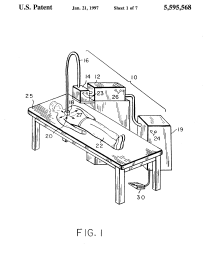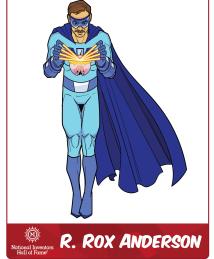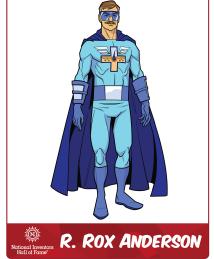R. Rox Anderson
"I think everybody is born with curiosity. It’s a question of whether you hang on to it."
Physician Rox Anderson, currently the Lancer Endowed Chair in Dermatology at Massachusetts General Hospital, developed laser-based treatments and procedures now commonly used in medical care to remove birthmarks, scars and other skin lesions. Anderson’s groundbreaking laser technology advanced laser-based solutions for other concerns, including permanent hair removal, acne treatment and tattoo removal.
In 1980, Anderson — then a Harvard University medical student — discovered a study on argon laser treatment for port wine stains (PWS). Though effective, the treatment carried a high risk of scarring. Anderson’s quest for an alternative led to the idea of selective photothermolysis (SP), which stemmed from his theory that by using pulses of light at appropriate wavelengths, specific structures within skin could be targeted and destroyed without damaging surrounding structures. Anderson developed SP with Harvard colleague John Parrish, then worked with Candela Corp. to produce the first commercialized pulsed dye laser. SP proved a landmark concept, successfully addressing PWS and forming the basis for many other dermatological laser treatments.
With his colleague Dieter Manstein, Anderson also developed fractional photothermolysis (FP), a procedure that rehabilitates hypertrophic (or raised) scars, using microscopic laser beams to initiate a natural wound healing response with no additional scarring. Anderson and Manstein also invented and developed selective cryolipolysis, which uses cold to selectively remove unwanted body fat. Cryolipolysis is now popular worldwide as a noninvasive alternative to liposuction.
Anderson has established charitable medical treatment facilities in several countries. When asked to describe himself in an interview with the National Inventors Hall of Fame®, Anderson responded, “I’m a guy who likes to solve problems, and I care about other people, and sometimes that gets expressed by solving problems in a lab, inventing and making technology work for people. I think of myself as a problem solver.”
Named on more than 80 patents and the recipient of numerous awards, Anderson acquired his bachelor of science degree in life sciences from the Massachusetts Institute of Technology and his medical degree from Harvard Medical School. His laser technologies have been licensed to multiple companies, and he continues to research both laser and nonlaser applications for medicine.


